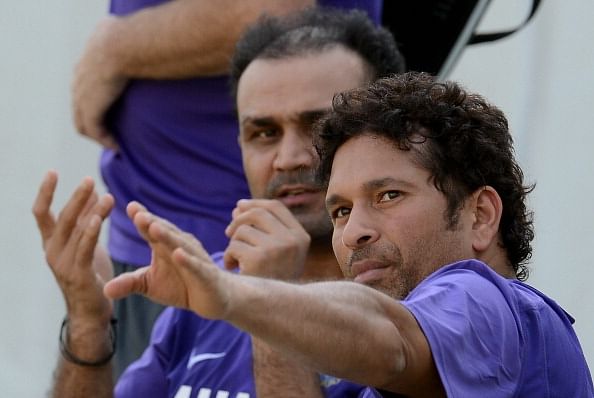
Satire: When cricketers 'played' politics
Cut to the future, where several cricketers have followed Tendulkar’s lead and worked their way through the corridors of power. Here are 8 of them, who from what we have learnt from their performances on match-days to their personalities off it, might find themselves right at home in politics.
Virender Sehwag
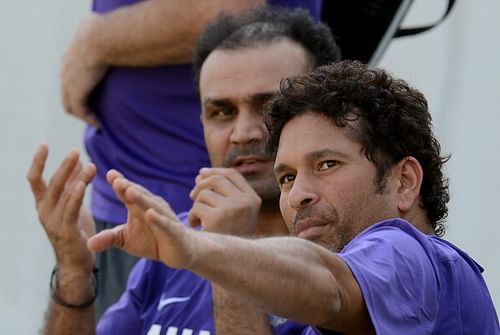
Learning, obviously, from the Master
Because the other incumbents were already firmly entrenched in their respective ministries, Sehwag was pitchforked into the Finance Minister’s role as a stop gap arrangement and immediately came to revolutionise the post, last ably presided over by Gavaskar. However, unlike any of his predecessors, he employed swift and aggressive fiscal policies in the first 15 months of his tenure to get his administration off to a flyer. Taxes, repo and reverse repo rates were slashed/cut with a lot of power and impeccable timing while government spending was stimulated at a rate previously unheard of in the fiscal space. There was to be no dilly dallying over passing of important bills either, “See the bill, pass the bill” was his mantra. During the latter stages of his tenure however, inflation caught up with him, a problem that plagued Ranatunga pretty much throughout his career.
Alastair Cook
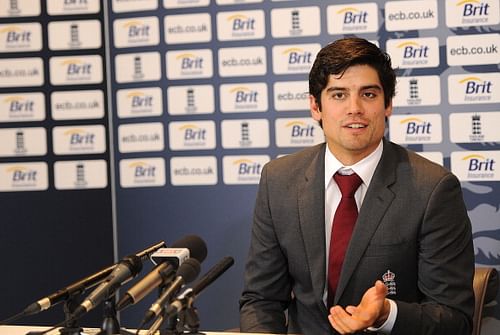
Cook grew to be extremely adept at matters of foreign ministry, and was known to have occupied his political office for extremely long stretches of time. He introduced much-needed stability, allowing mercurial politicians (Pietersen) around him to take risks and conduct business freely. Immigration laws were suitably relaxed under his watch, and his cabinet saw a steady influx of ministers from South Africa. He was especially effective while engaging in 13-hour speech marathons with his political opponents, during which many slipped into irreversible comas while others gnawed their arms off due to sheer boredom.
Sourav Ganguly
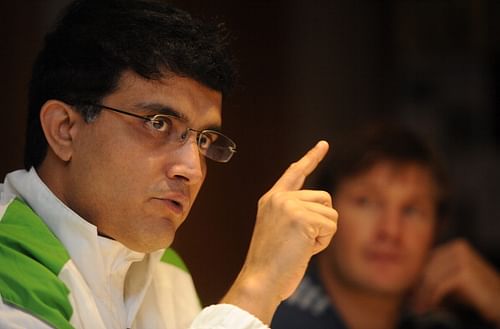
Ganguly proved to be an adept PM and comfortably ranks among the greatest PMs in the country’s history. Ganguly’s term began with prolific GDP growth and with net exports increasing for the first time in decades, things looked rosy for a while. However, as age caught up with him and with it senility, Ganguly refused to let go of what he now believed to be his right. His exit from the political arena proved no less than dramatic, where he announced his retirement when confronted with the possibility of shaking hands with an Australian diplomat (Ponting) who was renowned for spending meetings spitting profusely into his palms.
M.S. Dhoni
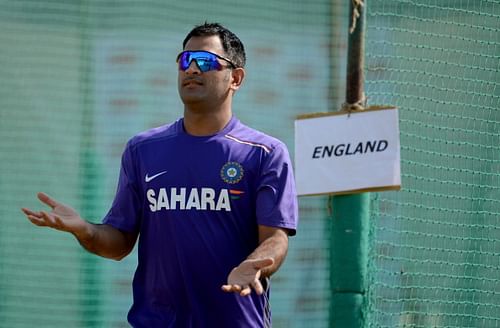
Dhoni quickly ascended to the position of PM, having inherited a cabinet full of political stalwarts from the previous incumbent. His appointment ushered in a period of prosperity for the country, during which India’s GDP rose quickly. After overseeing India’s rise to the top of the pile, it all went pear shaped after trade imbalances with England and Australia resulted in the Current Account Deficit ballooning to eight times its previous value. Car manufacturing units contracted significantly during his tenure; SUVs were recalled from the market and refitted with engines of sedans. Also, highway speed limits were brought down to 120 kmph limit. The country gradually began to spiral into recession. Much derided for persisting with the Rahul Gandhis of his cabinet – Ravindra Jadeja and Rohit Sharma – despite no significant contributions from their end, he enjoyed the blanket immunity accorded to him by Sonia Srinivasan whereby he was exempted from prosecution on all charges.
Shahid Afridi
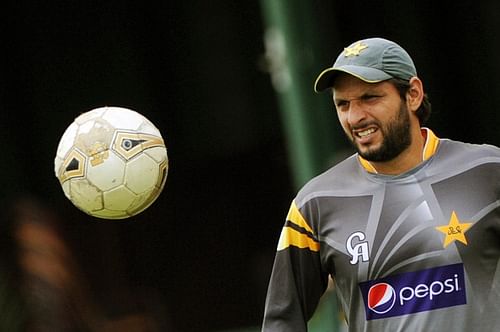
“I should eat it, I should not”
Appointed after a coup of the Pakistani Parliament, he was given dual portfolios of Defence and Food Processing industries. His motto was to attack – be it the opposition or even his own party members – with least concern about his country’s progress. He tried to do away with land transport and make ballistic missiles the primary mode of local transport, a policy that stemmed from his natural preference for going aerial. In a not too surprising event, Kamran Akmal “dropped” that proposal. His rules were erratic and he often got confused between his dual responsibilities. He once tried to eat an important defence deal document to avert financial disaster and when confronted, dismissed it as an attempt ‘to smell the fine print’. His foreign policy was every bit as bad as his predecessor’s (Inzamam). Atleast potato sales were sky high during the latter’s tenure.
Mahela Jayawardene
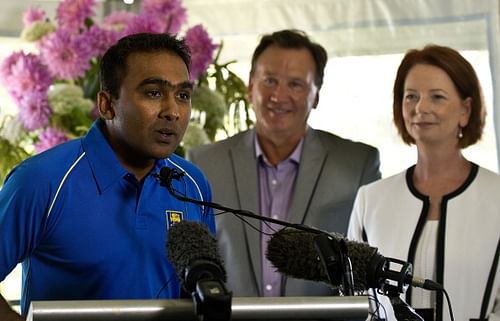
Earmarked very early in career as a promising PM candidate, Jayawardene’s none too impressive record outside Sri Lanka as foreign minister hampered his chances. In matters related to trade talks and general diplomacy, he came out second best at handling hostile negotiations from spirited overseas foreign ministers. However, he enjoyed a near decade long stranglehold on his position as Sri Lanka’s home minister.
Sreesanth
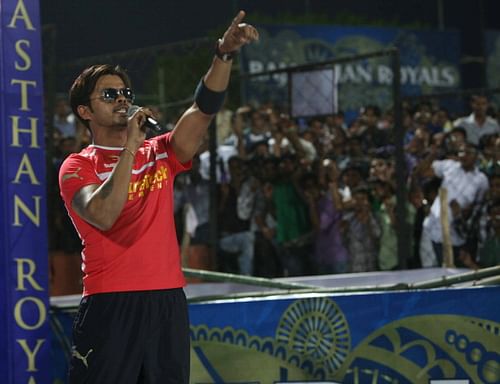
“Vote for me and you’ll get entertainment, entertainment and entertainment!”
The first MP from Kerala, mercurial and temperamental, he could beat anyone on his voting day. He carried his disgraceful on-field conduct to the Parliament as well, and found himself pretty much at home there. Once after shooting down an argument of the opposition, he proceeded to dance in the well of the Parliament and was promptly slapped by an MP from Punjab. Despite possessing a clean bowling action, he has been found repeatedly guilty of “throwing” in Parliament – tantrums that is, attributed to an unnatural hyper-extension of the ego.
Ravindra Jadeja
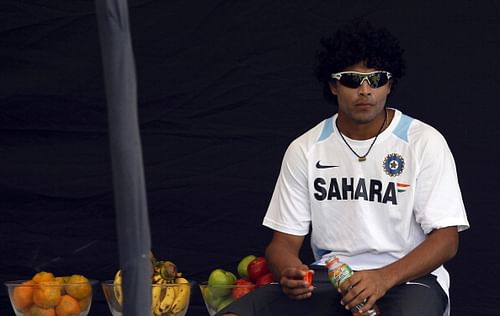
Every bit a curious minister as he was a cricketer, he almost appeared to have been elected by mistake, or as one of those double-agents from the opposition as we see in movies. As minister of Law and Justice, his modus operandi lay in extracting confessions from even the most hardened of criminals by making them watch simulated videos of himself bowling to himself. At the end of his tenure, it was difficult to work out if he had overachieved or underachieved, or done exactly as well as he should have.
DISCLAIMER – This is a satire, and should be taken in jest.